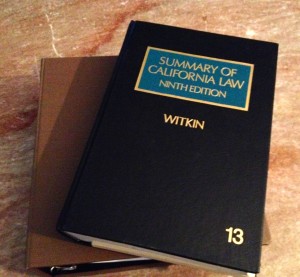When Can Attorneys Be Held Liable for the Acts of Others?
In previous Monday articles, this blog has examined the standard of care an attorney owes to his or her clients, and the manner in which a breach of that duty may constitute legal malpractice.
Most of the time, legal malpractice claims are based on the actions of an attorney and made against the attorney who took (or failed to take) the relevant actions. Since legal liability arises from the attorney’s breach of a legal duty owed to his or her client(s), it is difficult to find malpractice liability when the attorney in question is not the one whose actions breached a duty.
However, the law does recognize a few situations where an attorney may be held liable for the acts of others:
1. Co-counsel situations. In some situations, when two or more attorneys work together or represent clients jointly, each attorney may be held liable for the other attorney’s malpractice. However, this is not always the case.
2. Partners, employees, and agents. All of the partners in a law firm may be held liable for the malpractice of any other partner in the firm. Similarly, partners or principals in a law firm are legally responsible for the actions of their employees and “agents” (which, in this case, means persons legally authorized to act on the law firm’s behalf)
However: attorneys who are partners in a limited liability partnership (LLP) are not liable for the malpractice of other partners within the LLP. This is one reason many law firms are set up using the LLP structure.
3. Paralegals. Attorneys who utilize paralegals are liable if the paralegal commits acts beyond the scope of a paralegal’s permitted activities (including the practice of law without a license).
4. Rarely, actions of predecessor counsel. This is less common, but in some situations an attorney may be held liable for malpractice on the basis of actions taken (or not taken) by the attorney(s) who represented the client before (or after) he did.
In addition, it is uncertain whether California law will “generally” hold an attorney liable for the negligence of an attorney to whom the first attorney refers a case or client. However, if the referral was negligently made, an attorney may be held liable for making the negligent referral in the first place.
As always, the information in this post is intended for informational purposes only, and should not be considered legal advice about your personal case, claims, or situation.
If you believe that an attorney represented you negligently, or failed to comply with a legal duty the attorney owed to you, it’s important to consult an experienced attorney to see whether your case meets the threshold for a legal malpractice claim.
Remember: claims for legal malpractice are time sensitive. You may lose some or all of your rights if you delay in filing a claim. When your claim is based on the actions of someone other than the primary lawyer who represented you, delay may further prejudice your rights (and your claims) because of the problems associated with obtaining documents and other evidence from third parties (people other than your former lawyer).
If you think you have a claim, do not delay. Consult with a licensed, experienced lawyer promptly.















